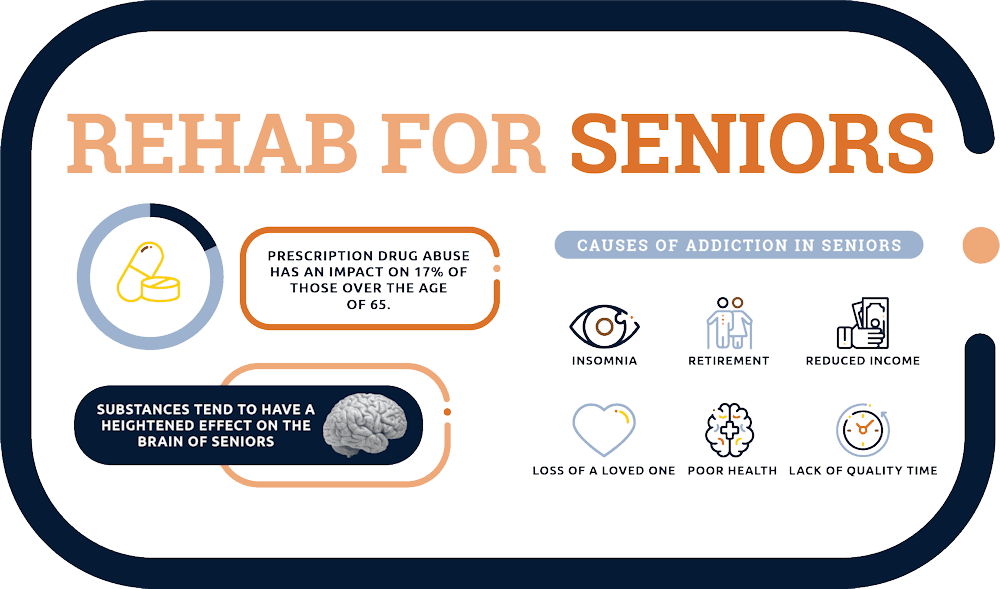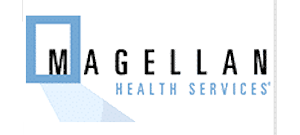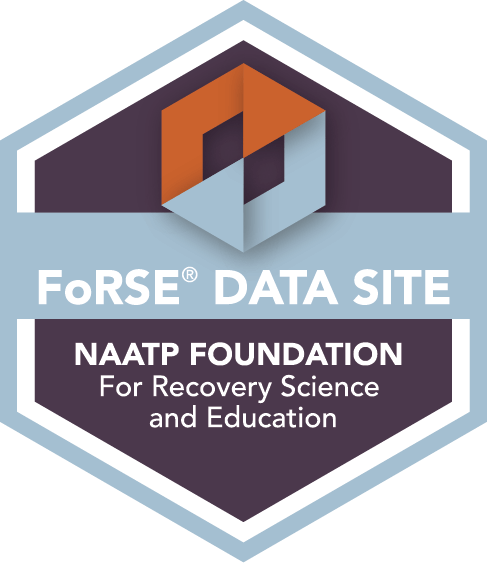Addiction is an equal opportunity affliction, showing no preference for profession, race, or age. It can impact anyone, including the elderly. Numerous older adults grapple with the challenges of substance dependence and addiction every day. A significant number of senior citizens are battling alcoholism and drug abuse, necessitating professional intervention. Customizing treatment practices for seniors with substance use disorders requires careful consideration of their distinct physical, cognitive, and psychosocial needs.
Our dedicated team at Northern Illinois Recovery Center in Crystal Lake, Illinois, recognizes the effects of addiction on people across all age groups. At our rehab for seniors, we’re focused on assisting older adults and elderly adults in overcoming substance abuse and addiction.
- Over 4.6 million American adults aged 65 and older (8%) faced substance use disorders in the past year. Within this cohort, approximately 2.3 million (4.6%) were diagnosed with alcohol use disorders, while around 1.8 million (3.9%) had drug use disorders.
- Individuals aged 50 and above who misuse opioids or benzodiazepines exhibit significantly higher rates of suicidal ideation (25%) compared to their counterparts who do not misuse these substances (2%).
- There are 1.5 million older adults with a substance use disorder. Between 2015 to 2050, the proportion of the world’s population over 60 years will nearly double from 12% to 22%. By 2030, 1 in 6 people in the world will be 60 years or older. This current cohort of aging adults will continue to grow at a rapid rate.
Addiction is a disease that doesn’t discriminate. Northern Illinois Recovery Center in Crystal Lake, IL, is equipped to provide support to a variety of demographics, with our treatment programs and behavior therapies specifically tailored to address the needs of seniors struggling with drug and alcohol addiction.
Common Substances Of Abuse in the Elderly Population
Alcohol use disorder (AUD) is prevalent among the general adult population in the United States, including seniors. Older adults often face heightened adverse effects from excessive alcohol intake, primarily due to its impact as a depressant on the central nervous system.
Marijuana can interact with other medications that the older adult has been prescribed. Memory impairment and depression are risk factors for marijuana use in the elderly.
Prescription drug misuse (PDM) involves consuming medications without a legitimate prescription or contrary to a physician’s intent. The consequences of prescription drug abuse can result in severe health risks, including heart attacks and strokes, especially when combined with other substances, leading to potentially fatal overdoses and worsening existing health issues common in older adults, such as coronary artery disease, diabetes, and neurocognitive decline.
Signs and Symptoms of Addiction in Seniors

If you suspect that a senior loved one may be struggling with substance dependence, there are several warning signs to observe, such as:
- Loss of enjoyment of hobbies and activities
- Isolation from family and friends
- Recurring desire to be left alone
- Taking more of their medication than is prescribed
- Changes in eating or sleeping patterns
- Anger, irritability, depression, or sadness
- Other emotional changes
- Consuming more alcohol than usual
- Lack of personal hygiene or self-care
- Abnormal bruises and chronic pain
- Obsession with medication
- Drug-related paraphernalia
- Memory loss
- Poor coordination or loss of balance
- Slurred speech
- Unexplained nausea or vomiting
- Fatigue
- Pupil constriction or dilation
- Bloodshot eyes
If you recognize these signs in a loved one, it’s important to seek professional intervention as soon as possible.
NIRC’s Drug and Alcohol Rehab for Seniors
Generally, drug and alcohol detox is the first step in the addiction treatment or rehab process. After an initial evaluation, a patient can expect to spend 7-10 days in drug and alcohol detox. Detoxification is the process of ridding the body of toxic substances to fully embrace the treatment. Physical withdrawal symptoms can be uncomfortable, even lethal in the most severe cases. Detoxification can be medically supervised, especially for substance abuse in the elderly.
Inpatient treatment programs offer the benefit of 24/7 quality care for admitted patients. These programs are vital for those with moderate to severe cases of addiction. Inpatient rehabilitation can also be beneficial for those with a history of previous attempts at sobriety. Therapy services, such as individual therapy and group counseling, are used to treat the underlying causes of substance abuse in the elderly.
Residential rehab can last up to 30, 60, and 90+ days. The cost of an inpatient treatment program will be determined by a variety of factors. Inpatient care entails a mission to create a safe, trigger-free environment for patients.
Outpatient addiction treatment programs are a flexible and cost-effective approach to addiction recovery. If you can’t commit to an inpatient treatment program, outpatient treatment could be for you. An outpatient treatment program allows people with less severe circumstances to have the flexibility of living at home, going to school, work, and other activities while still attending treatment sessions. With individual and group therapy offered, a patient can use psychotherapy as a gateway to relieve their symptoms. Other amenities, such as holistic, art, and music therapy, could be offered in outpatient treatment programs.
The average length of an outpatient program is 30 days. The reduced medical supervision could be useful for those with mild to moderate cases of addiction. Intensive outpatient programs (IOPs) are more structured yet provide flexibility. Education about addiction and employment training can guide the patient towards healthier coping skills to practice in the real world.
Dual diagnosis treatment can be effective in treating substance abuse in the elderly. Co-occurring disorders are classified as a combination of a substance use disorder and a mental health disorder. Considering that substance use disorders produce mental health symptoms and vice versa, treating both is crucial for the livelihood of patient.
An alarming portion of recovering individuals have a co-occurring disorder. Dual diagnosis treatment is a fairly recent practice in the healthcare industry. It was previously understood to treat each disorder separately. The change in outlook towards treating both has been a key benefit in maintaining sobriety.
Medication-assisted treatment can be vital in maintaining sobriety in older adults. Older adults are often prescribed medication to treat health issues such as chronic pain or mental health symptoms. Medication-assisted treatment is carried out with trained medical staff to alleviate your symptoms. After an evaluation of your medical history, your medications will be a supportive addition to the other medical services you receive.
Case management is a nuanced approach to receiving assistance for substance abuse in the elderly. This is conducted through a counselor or social worker who provides detailed outlines for recovery, typically by providing resources. A case manager will seek to understand your case and initiate recovery goals for you.
S.M.A.R.T. Goals are an efficient way to project your addiction treatment. Case management has been used to treat mental health cases, but it works well with other behavioral health disorders. Case management can be a discreet option.
Rehab for Seniors FAQs
There is no maximum age limit, as our facility accepts adults of all ages, including seniors. At Northern Illinois Recovery Center, our specialized senior program is designed to address the unique physical and psychological needs of older adults. Therefore, seeking help is a viable and encouraged option for seniors struggling with addiction.
Talk to a senior about their addiction by expressing concern with empathy, respect, and a focus on their health and well-being. It is important to choose a calm, private time for the conversation and to use “I” statements to avoid sounding accusatory. Offering your support and having information ready about specialized senior rehab options can make the discussion more productive.
Substance use in the elderly is often used as a coping mechanism or way to self-medicate. The following risk factors are influential in causing dependency and addiction in older adults:
- Grief
- Financial loss
- Mental illness
- Social withdrawal
- Chronic pain or illness
- Lack of a support system
- An avoidance coping style
Some elderly individuals have been using substances for years, with the long-term effects becoming present with age.
Senior rehab typically lasts rangetypically laststo 90 days, depending on the individual’s needs. The exact duration is determined by the severity of the addiction, the senior’s physical and mental health, and their treatment progress. Many benefit from longer-term programs or step-down options like sober living to ensure a stable recovery.
Medicare could cover all or most of senior addiction treatment. It’s recommended to contact the addiction rehab center from which you intend to receive treatment. It’s best to discuss with your healthcare provider to determine what’s best for you. Certain facilities have guidelines for what forms of payment or insurance are covered. Our admissions team can help you verify your insurance benefits so you understand the exact cost of your rehab program.
Insurance Verification











